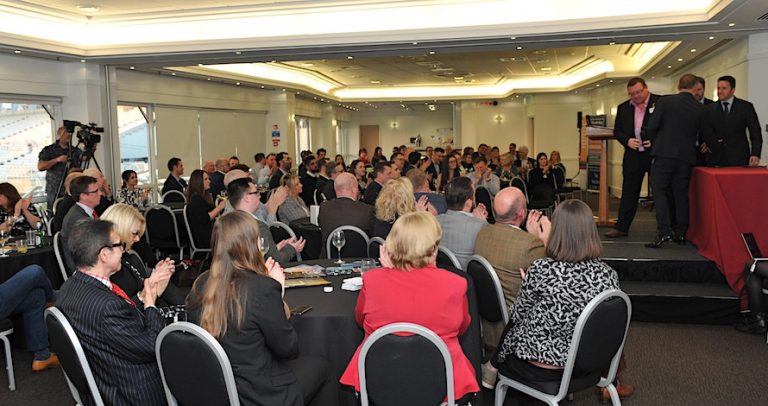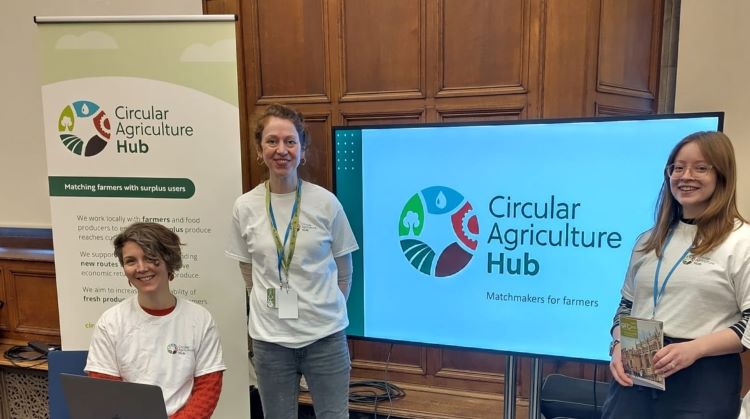On
Thursday 2nd October, East Midlands Business Link’s prestigious
Bricks Awards will take place at the famous Trent Bridge Cricket Ground, celebrating the region’s property and construction industry.
The annual event recognises development projects, businesses, and people in commercial and public building across the region – from office, industrial and residential schemes, through to community projects such as leisure schemes and schools.
With
nominations closing on Friday 15th August, 10 categories are available to enter. Don’t miss out on this opportunity to showcase your projects and team, reward their hard work, and boost morale.
Amongst this year’s categories is
Responsible Business of the Year, which can be entered
here.
The winner of this award will have demonstrated corporate responsibility in their field, working in harmony and for the betterment of the local community in which it operates and setting a shining example for the rest of the supply chain.
It’s
completely free to submit a nomination and making the top three finalists in your category also wins you free tickets to the awards ceremony.
Last year the award was won by Stepnell Ltd, with Cawarden and Cora runners up. Tom Sewell, regional director at Stepnell, said: “Winning the Responsible Business Award at the 2024 East Midlands Bricks Awards was an incredibly proud moment for the Nottingham team at Stepnell, recognising our dedication to responsible practices and commitment to sustainable development in the region.
“The awards are a fantastic opportunity to connect with others in the industry and celebrate regional excellence. I would wholeheartedly encourage business from across the East Midlands property and construction landscape to get involved.”
With this year’s Responsible Business of the Year award sponsored by
Wright Vigar, Tom Maxwell, marketing manager at Wright Vigar, said: “We’re proud to be sponsoring the Responsible Business category at this year’s Bricks Awards. Supporting this initiative reflects our belief that long-term success in business goes hand-in-hand with integrity, sustainability, and community impact.
“We’re looking forward to celebrating the outstanding achievements of property and construction professionals across the region and encourage businesses of all sizes to put themselves forward.”
Submit your nominations for Responsible Business of the Year
here, before entries close on
Friday 15th August.

Winners will be revealed at a glittering awards ceremony on
Thursday 2nd October, at the Trent Bridge Cricket Ground (4:30pm – 7:30pm) – an evening also offering an opportunity to establish new connections with property and construction professionals from across the region, and hear from keynote speaker Councillor Nadine Peatfield – Leader of Derby City Council, Cabinet Member for City Centre, Regeneration, Strategy and Policy, and Deputy Mayor of the East Midlands.
Other award categories open for entry include: Most Active Agent, Developer of the Year, Sustainable Development of the Year, Commercial Development of the Year, Contractor of the Year, Deal of the Year, Architects of the Year, Excellence in Design, and Residential Development of the Year. All entry forms can be accessed
here.
The Overall Winner award will also be presented at the event. This award cannot be entered, with the winner selected from those nominated for the event’s other awards.
The Overall Winner of the East Midlands Bricks Awards 2025 will also receive a grand prize of a year of marketing/publicity worth £20,000, with the opportunity to split or gift the marketing to a charity of your choice.
The East Midlands Bricks Awards 2025
What: The East Midlands Bricks Awards 2025
When: Thursday 2nd October (4.30pm – 7.30pm)
Where: Derek Randall Suite,
Trent Bridge Cricket Ground, Nottingham
Keynote speaker: Councillor Nadine Peatfield – Leader of Derby City Council, Cabinet Member for City Centre, Regeneration, Strategy and Policy, and Deputy Mayor of the East Midlands
Tickets: Available
here
Dress code: Standard business attire
Thanks to our sponsors:










To be held at:

 Winners will be revealed at a glittering awards ceremony on Thursday 2nd October, at the Trent Bridge Cricket Ground (4:30pm – 7:30pm) – an evening also offering an opportunity to establish new connections with property and construction professionals from across the region, and hear from keynote speaker Councillor Nadine Peatfield – Leader of Derby City Council, Cabinet Member for City Centre, Regeneration, Strategy and Policy, and Deputy Mayor of the East Midlands.
Other award categories open for entry include: Most Active Agent, Developer of the Year, Sustainable Development of the Year, Commercial Development of the Year, Contractor of the Year, Deal of the Year, Architects of the Year, Excellence in Design, and Residential Development of the Year. All entry forms can be accessed here.
The Overall Winner award will also be presented at the event. This award cannot be entered, with the winner selected from those nominated for the event’s other awards. The Overall Winner of the East Midlands Bricks Awards 2025 will also receive a grand prize of a year of marketing/publicity worth £20,000, with the opportunity to split or gift the marketing to a charity of your choice.
Winners will be revealed at a glittering awards ceremony on Thursday 2nd October, at the Trent Bridge Cricket Ground (4:30pm – 7:30pm) – an evening also offering an opportunity to establish new connections with property and construction professionals from across the region, and hear from keynote speaker Councillor Nadine Peatfield – Leader of Derby City Council, Cabinet Member for City Centre, Regeneration, Strategy and Policy, and Deputy Mayor of the East Midlands.
Other award categories open for entry include: Most Active Agent, Developer of the Year, Sustainable Development of the Year, Commercial Development of the Year, Contractor of the Year, Deal of the Year, Architects of the Year, Excellence in Design, and Residential Development of the Year. All entry forms can be accessed here.
The Overall Winner award will also be presented at the event. This award cannot be entered, with the winner selected from those nominated for the event’s other awards. The Overall Winner of the East Midlands Bricks Awards 2025 will also receive a grand prize of a year of marketing/publicity worth £20,000, with the opportunity to split or gift the marketing to a charity of your choice.























